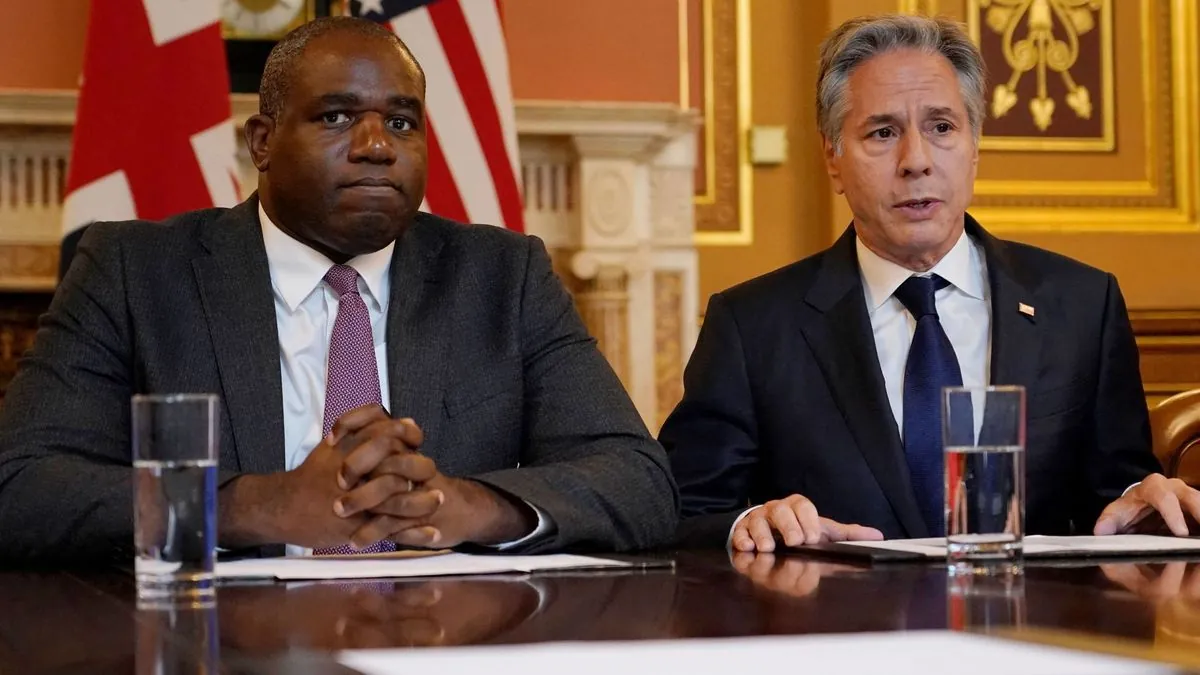In a recent development concerning the ongoing Israel-Lebanon tensions, David Lammy, the British Foreign Minister, has reiterated the need for an immediate cessation of hostilities. This call comes in the wake of a telephone conversation with U.S. Secretary of State Antony Blinken on September 30, 2024, amid reports suggesting a potential intensification of the conflict.
The Israel-Lebanon conflict, rooted in a complex history dating back to the 1940s, has been a source of regional instability for decades. Lebanon gained independence in 1943, followed by the establishment of Israel in 1948, setting the stage for ongoing tensions. The conflict has since been marked by numerous incidents, including the 2006 Lebanon War, which lasted 34 days and resulted in significant casualties.
Lammy expressed concern over media reports indicating Israel's possible deployment of ground forces into Lebanon. He emphasized the shared stance with Blinken, aligning with the position taken at the United Nations the previous week. Both officials concur that an immediate ceasefire and a return to diplomatic negotiations represent the optimal path forward.
"We've both seen the reports in the media about a next phase for Israel in Lebanon. We both agreed the position that we had at the U.N. last week that the best way forward is an immediate ceasefire and to get back to a political solution."
The conflict's impact extends beyond immediate security concerns. It has significantly affected both nations' economies and tourism sectors, particularly in border regions. Additionally, disputes over water resources, such as the Litani River, and maritime borders concerning natural gas fields have further complicated the situation.
International efforts to mediate the conflict have been ongoing. The United Nations Interim Force in Lebanon (UNIFIL), established in 1978, continues to play a crucial role in maintaining stability along the Blue Line, the UN-demarcated border between Lebanon and Israel established in 2000. However, challenges persist, including disagreements over territories like the Shebaa Farms area.
The presence of Hezbollah, a Lebanese political and military organization, adds another layer of complexity to the conflict. Cross-border security issues, including concerns over tunnels and airspace violations, have remained persistent points of contention between the two nations.
As the situation evolves, the international community watches closely. The conflict's influence on regional alliances and Middle Eastern geopolitics underscores the importance of finding a sustainable resolution. The calls for ceasefire and political dialogue from officials like Lammy and Blinken reflect a growing recognition of the need for diplomatic solutions to this longstanding issue.
The absence of formal diplomatic relations between Israel and Lebanon, coupled with Lebanon's large Palestinian refugee population, further complicates efforts towards peace. However, the consistent involvement of international mediators and the issuance of multiple UN Security Council resolutions demonstrate the global community's commitment to resolving this protracted conflict.
As tensions continue to simmer, the focus remains on de-escalation and the pursuit of a political solution that addresses the core issues at the heart of this complex and enduring regional dispute.
